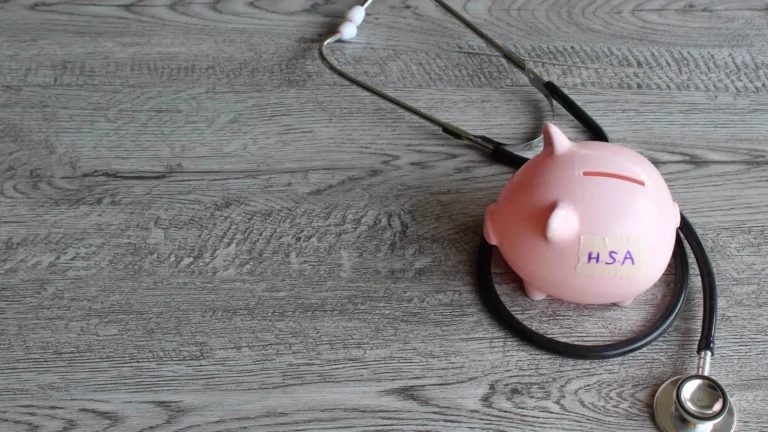Table of Contents
Medical expenses can jeopardize household financial security, even more so than rent and food. Many families keep careful track of how much they spend on rent, food, and utilities, but can be completely unaware of the actual cost of healthcare, which, as you all know, can get out of hand.
It doesn’t take much for medical expenses to hover around the nominal rate; if you visit the doctor for even something minor, before you know it, you’ve spent thousands and aren’t even sure what that means for your insurance plan. Moreover, this article shows how ignoring healthcare costs ruins budgets; it can lead to debt, anxiety, and the possibility of having to reconsider your financial priorities.
Let’s discusses how healthcare costs negatively impact financial stability without us even realizing it —and, more importantly, how to better plan for them.
The Hidden Impact of Healthcare Costs on Your Budget
Health expenses usually aren’t observed beforehand until they hit you badly; at that point, it may derail your entire financial plan. Realizing where health expenses lurk is the first step to budgeting smarter.
1. Unexpected Medical Bills Might Break Your Budget
Medical emergencies are not easy to predict. Costs can skyrocket in a hurry when you have to go to the emergency room, call an ambulance, or see a specialist, even if you have insurance. The average ER visit in the U.S. costs about $1,200 to $2,500, depending on the hospital; overnight hospital stays can cost $10,000 or more.
Establish an emergency fund for medical services. If you save at least a fund that covers three to six months of potential medical expenses, that will give you some financial support when you become ill or are injured unpredictably.
2. Health Insurance Premiums Chip Away at Your Income
Many families do not realize how much insurance premiums can eat into their monthly income. A family health plan can range from $500 to $1,500 per month, totaling thousands annually, not including additional costs for prescriptions and co-pays. Thus, well over $10,000 a year —possibly too much to think about regularly.
What to do: Evaluate your plans thoughtfully for value: a balance of coverage versus cost. An HSA or FSA can help you save pre-tax dollars for medical expenses. Consider cutting your health insurance each year as warranted, until your family’s budgeting goals are comfortably met.
3. Out-of-Pocket Expenses Accumulate Fast
Premiums are only part of the story. Deductibles, co-pays, prescriptions, and non-covered treatments can quietly increase costs, even with adequate insurance; out-of-pocket costs for routine lab tests or minor surgeries can range from $1,000 to $5,000.
Read your policy carefully to understand your responsibilities fully; budget and plan separately for out-of-pocket costs (always round up your estimates); and use TryBeem’s budget management tools to easily track and report your health care spending.
The Impact of Healthcare Costs on Debt
Health care costs can shift from one-time expenditures to ongoing expenses, negatively impacting your credit, savings, and peace of mind when they are not anticipated.
1. Postponing Medical Care Due to High Costs
Many Americans don’t get care because they can’t afford it. According to the Kaiser Family Foundation (KFF), around 40% of Americans delayed treatment due to costs. However, skipping preventive or early care increases the risk of worse conditions later, which ultimately costs more than going when it is preventive or early.
Get the care you must and preventative care when you can. If the charge is overwhelming, discuss a payment plan or financial assistance with providers. While not going may give short-term cash, avoid taking on an even larger medical bill later. Read more on How Inflation Impacts Healthcare Costs.
2. The Build-Up of Medical Debt
Medical debt remains a leading cause of bankruptcy in the United States. A 2023 LendingTree report found that over 22% of Americans have medical debt, with an average of $2,500 in overall debt per person. One serious illness can wipe out years of savings.
Negotiate directly with the healthcare provider. Many hospitals offer interest-free installment payments or hardship discounts. If you deal with this before it goes to collections, you will not damage your credit.
3. The Extended Consequences of Unpaid Medical Bills
Unpaid medical debt may remain on credit reports for years, making it difficult for you to borrow or qualify for beneficial rates on cryptocurrencies or loans. This constriction ultimately delays significant financial opportunities, such as owning a home or obtaining affordable insurance.
Keep a decent record of your medical bills to check they are correct. If you cannot pay it, you can use one of TryBeem’s debt management tools or consult with a financial counselor to develop a structured repayment plan before it gets too far.
The Consequences of Underestimating Healthcare Costs
Ignoring healthcare in your budget doesn’t affect just your finances and physical health; negative effects can spill over into your overall mental and developmental well-being.
1. Financial Stress and Anxiety
Unanticipated medical expenses are a leading cause of financial stress. Research indicates that anxiety related to finances can also exacerbate both physical and mental health issues, paradoxically creating greater health care needs.
Set aside money for health care as a line item in your budget. By planning, you can limit anxiety and maintain emotional neutrality, even if a non-preventable health care emergency happens.
2. Less Financial Freedom
When families are faced with unexpected medical costs, they often need to cut or stop spending on basics, including housing, food, or transportation. This can impact quality of life and create prolonged disruption.
Think of healthcare as a fixed cost rather than a choice. Putting away a percentage of your income regularly offers flexibility when you experience an unexpected medical expense.
3. Missed Opportunities for Saving and Investing
Redirecting cash flow toward medical costs can mean less for retirement planning, investments, or education savings. Over the years, these missed opportunities can affect the potential for financial growth and independence.
Capture healthcare costs in your long-term financial plan. Automate savings to the emergency fund and the savings account so that healthcare expenses do not sidetrack your broader financial plan.
Healthcare Costs: Why They’re Usually Ignored
Many people “budget” healthcare out of their finances, not because they don’t think it’s important, but because it’s unpredictable—not knowing budgets, prices or total expenses. Understanding why this happens is the first step towards fixing it.
1. Volatile and Variable Costs
Unlike monthly bills, which are easily predictable, medical expenses are more of a wildcard, which can cause people to neglect them.
Assuming conservative estimates of medical costs, and over-budget a little for unexpected charges. This will also help you avoid financial strain in the event of unforeseen events.
2. Limited Awareness of Insurance Coverage
A lot of people misunderstand what these terms mean — e.g., deductibles, co-insurance, or exclusions — and inaccurately budget for health care.
Carefully read your plan, and write down what is covered. Knowing your insurance coverage will eliminate surprises and help you make better financial decisions.
3. Underestimating Ongoing Healthcare Expenses
It’s easy to overlook small, ongoing expenses, such as check-ups, prescriptions, dental cleanings, etc Over time, these “minor” costs can add up to hundreds of dollars a year.
Plan a monthly budget of $50- $100 for routine care. This will provide you with a small buffer for your ongoing/ minor costs, and will not disrupt your primary budget.
Strategies for Managing Healthcare Costs
Healthcare costs can be budgeted for in the same way as any household expenditure, and making a careful plan will lead to no deficits in coverage or savings.
1. Health Savings Accounts (HSAs) or Flexible Spending Accounts (FSAs)
HSAs and FSAs allow you to set aside pretax dollars to pay for eligible health-related expenses, reducing your taxable income while assuring that funds are available for medical expenses.
Make regular contributions to these accounts and use them to make co-pays for visits, medicines, or preventive services. HSAs also accumulate, providing significant savings options that carry over into the following year.
2. Include Health Expenses in Your Emergency Fund
A well-funded emergency fund categorizes health spending in some way. It helps you avoid using credit cards or taking out loans when large, unexpected bills arise.
This is equivalent to three to six months of living expenses, with part of that balance saved for emergencies.
3. Review Your Health Plans Each Year
Insurance definitions and premiums tend to change annually. As a result, it can be costly to stick with the same plan without thinking carefully about your health needs and budget.
Whenever open enrollment occurs, take time to compare the available plans to find the best fit for your health situation and budget.
4. Allocate Funds for Preventive Care
Preventive care allows you to identify potential problems early, so you can address them before costly measures are needed.
You should view these expenses as an investment in both your health and finances. Allocate an annual budget for routine health screenings, vaccinations, and wellness check-ups.
5. Assist in Negotiation of Medical Costs and Payment Plans
Numerous health care providers are willing to negotiate or offer payment plans.
Call the billing department to discuss flexible payment options or a payment plan. Request the payment modalities in writing to be protected. You can also ask for discounts for early or full payment.
Conclusion – Start Planning Today, Maintain Your Financial Health Tomorrow
Healthcare expenses can undermine your financial foundation. The financial devastation, including unexpected bills, debt, and costly support systems, will stretch well beyond your bank account. It may last even longer than the time it takes you to recover.
Budgeting for healthcare, maintaining an emergency savings fund, and regularly reviewing your insurance will alleviate surprises. Planning today will ensure healthcare will not become a financial crisis tomorrow. Use Beem to get beneficial insights on where to cut costs, where to spend and how to save your money with your personalized Budget Planner.
The bottom line is this: to secure your financial health tomorrow, plan for healthcare today—so you can focus on wellness, not bills! Download the Beem app today!
FAQs on How Ignoring Healthcare Costs Ruins Budgets
Why include healthcare in my budget?
Medical costs are very unpredictable; if you include them, you won’t incur unexpected debt and stress in an emergency or once you are in the medical facility.
What’s the best way to save for healthcare expenses?
Invest in HSAs or FSAs, which allow you to save for healthcare expenses tax-free. Create an emergency fund for medical needs.
What can I do to lower the cost of staying healthy?
Review your insurance annually, use preventive health care benefits when they are available, and, when you can, ask for the best price on any medical bills.
How much should I save for my health?
Save 5–10% of annual income for health premiums, co-pays, and other expenses.
Is it acceptable to tap into my emergency fund to pay medical bills?
Yes, for health expenses, your emergency fund should cover them so you don’t go into debt or divert funds from your budget.














































